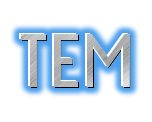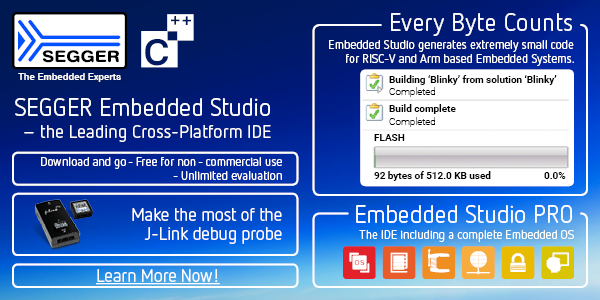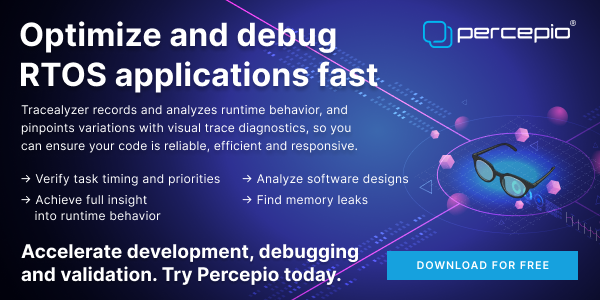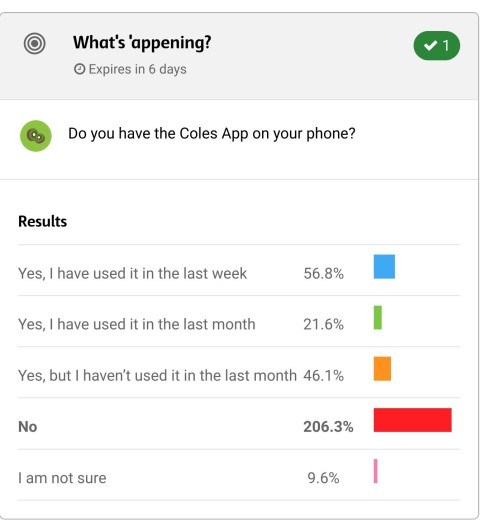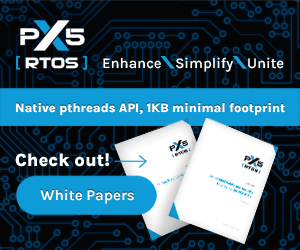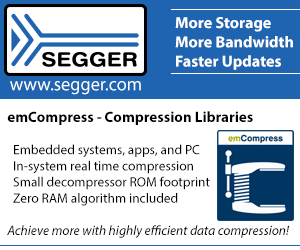 Go here to sign up for The Embedded Muse.
Go here to sign up for The Embedded Muse.
|
||||||||||||
You may redistribute this newsletter for non-commercial purposes. For commercial use contact jack@ganssle.com. To subscribe or unsubscribe go here or drop Jack an email. |
||||||||||||
| Contents | ||||||||||||
| Editor's Notes | ||||||||||||
|
Tip for sending me email: My email filters are super aggressive and I no longer look at the spam mailbox. If you include the phrase "embedded muse" in the subject line your email will wend its weighty way to me. |
||||||||||||
| Quotes and Thoughts | ||||||||||||
Far better an approximate answer to the right question, which is often vague, than an exact answer to the wrong question, which can always be made precise. John Tukey |
||||||||||||
| Tools and Tips | ||||||||||||
|
Please submit clever ideas or thoughts about tools, techniques and resources you love or hate. Here are the tool reviews submitted in the past.
The always-interesting Shape of Code blog has a quick study of estimation - in the building industry! (Scroll down to "Estimation accuracy in the (building|road) construction industry"). Like us, these folks have a hard time getting estimates right, though most come in under actual costs. It would have been interesting to see how this correlates to fixed-price- (if there are any in that business) versus cost-plus-jobs. The Rust language gets a lot of press. But is it better than C? "Better" is, of course, a subjective term that should be modified by lots of caveats. However, this article thinks it's not a C replacement, at least in the embedded space. |
||||||||||||
| Freebies and Discounts | ||||||||||||
The giveaway is on hiatus for the summer. |
||||||||||||
| More on Documenting in English | ||||||||||||
The last issue's comments about documenting in English generated a lot of dialog. Some comments follow. The always-thoughtful Vlad Z wrote:
Philip Johnson writes "make sure you understand something sufficiently before trying to code it". He continues:
Philip's exhortations to "make sure you understand something sufficiently before trying to code it" cannot be emphasized enough. I think the worst curse that plagues this industry is our very natural desire to jump in and start coding ASAP, all-too-often before we have a good understanding of the problem. Today some wags deprecate design. I have been told that "a design will emerge from the code." This is a reaction to the time needed to really think things through. If you think good design is expensive... try bad design. Sergio Caprile echoes Philips thoughts on C:
John Carter writes:
Jan Woellhaf makes an interesting point about English as the lingua franca in aviation:
Martin Buchanan comes at this from the standpoint of a documenter:
Finally, Claus Waldersdorff Knudsen makes the amusing point: "Maybe we should learn to document our work IKEA style?" |
||||||||||||
| Cooperative Multitasking | ||||||||||||
Daniel McBrearty is a fan of cooperative multitasking:
With cooperative multitasking there is no preemptive scheduling. A task runs for its allotted time and then returns execution to the scheduler. It's based on the assumption that tasks will be well-behaved and won't starve the CPU. Few tools ever existed to support this. Z World's Dynamic C was a strange compiler that had built-in cooperative multitasking. It was a mild success for a time. It seems to still be available, though only for the Rabbit MCU. |
||||||||||||
| Failure of the Week | ||||||||||||
From Stephen:
From Boi Okken:
Have you submitted a Failure of the Week? I'm getting a ton of these and yours was added to the queue. |
||||||||||||
| This Week's Cool Product | ||||||||||||
Dave Marpleshas been on Open Source tooling for ARM CORTEX Debug and Trace in collaboration with Vegard Eriksen in Norway. They now have a low cost interface, known as ORBTrace, which can act both as a 'regular' JTAG/SWD debug interface, and as a SWO or TRACE interface too. It's not really aimed at 'professional engineers' (although they're welcome to use it!). If you depend on your tools to put food on the table then you should be buying something from Segger, Keil, Lauterbach or one of the other organisations that are structured to offer proper support. It _is_ aimed at the cohort who can't access that quality of kit; hobbyists and university students/professors should all benefit from having access to this stuff, and in exchange they'll improve it too by scratching their own itches. As Dave writes: Please take a look at https://orbcode.org. This will either resonate with you and you can see possibilities, or you'll hit the delete key... I hope it's the former, but I certain won't be offended if it's the latter. There is (a bit) of hardware available, but sales are not the aim of the game here and we've pushed the price right down because we want adoption of these technologies. Note: This section is about something I personally find cool, interesting or important and want to pass along to readers. It is not influenced by vendors. |
||||||||||||
| Jobs! | ||||||||||||
Let me know if you’re hiring embedded engineers. No recruiters please, and I reserve the right to edit ads to fit the format and intent of this newsletter. Please keep it to 100 words. There is no charge for a job ad. |
||||||||||||
| Joke For The Week | ||||||||||||
These jokes are archived here. From Jon: My Function Generator has a setting for "dental trauma tsunami" |
||||||||||||
| About The Embedded Muse | ||||||||||||
The Embedded Muse is Jack Ganssle's newsletter. Send complaints, comments, and contributions to me at jack@ganssle.com. The Embedded Muse is supported by The Ganssle Group, whose mission is to help embedded folks get better products to market faster. |


